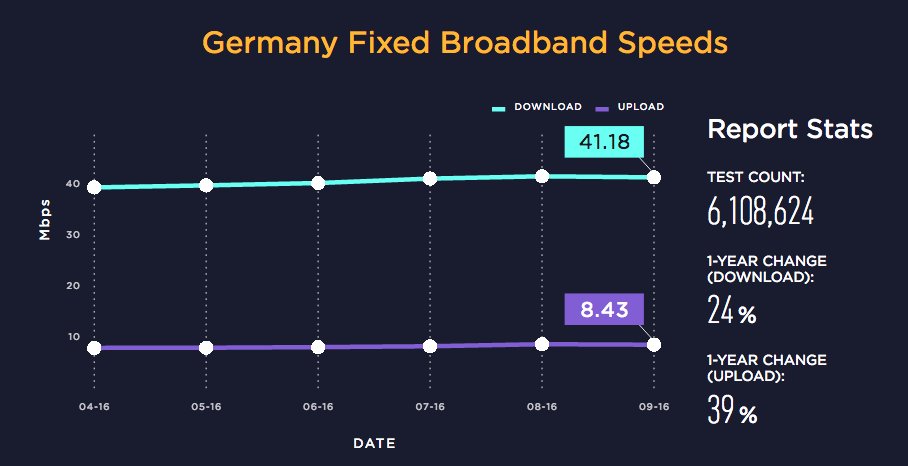

Depending on the NBN technology type used to connect your home to the network, you could have up to six or more speed tier options available at your address.Ĭurrently, there are six main residential NBN speed tiers commonly available to customers. If you’re one of the millions of Aussies now on an NBN plan, you have a range of speeds to choose from - which can make it harder to figure out if you’re actually getting the best speed for your needs. Read more: What internet speed is best for my household?
#Speedtest by ookla results download
These plans are typically quite expensive - ranging from $110 to $180 per month on average - and are best suited to large households with big download demands.īut if you can afford to go super-fast, and feel like you’d benefit from the extra speed, you can now find NBN 250 and NBN 1000 options from most major NBN providers, including Telstra, Optus, TPG and more. If you’re on an eligible FTTP or HFC connection, and want a premium speed experience, you may also be interested in NBN 250 or NBN 1000 plans. HD video streaming, music streaming, online gaming, sharing/uploading photos, video callingĤK video streaming, uploading/downloading large files, online gaming, heavy internet use over multiple devices simultaneously Moderate web browsing, social media browsing, sending emails, SD video streaming, music streaming
#Speedtest by ookla results full
← Mobile/tablet users, scroll sideways to view full table →ĥ0/20Mbps: 50Mbps download, 20Mbps uploadġ00/40Mbps or 100/20: 100Mbps download, 40Mbps upload or 20Mbps upload To give you an idea of what the four standard tiers are best suited for, you can compare NBN 12, NBN 25, NBN 50 and NBN 100 uses below. The more people in your home, and the more data-intensive your daily use is, the more likely you are to need a faster plan. What is your budget? Plans are priced by speed, so you may need to compromise if you have a spending limit.What speeds are available on your NBN connection type? FTTP and some HFC connections can access all speeds, while FTTN, FTTB and FTTC may be limited to NBN 100 or NBN 50, and satellite and fixed wireless connections max out at around NBN 25 speeds (NBN 50 for fixed wireless plus).How many devices will you be connecting, and will they be used simultaneously? Alongside computers and laptops, you may need to connect smartphones, smart TVs, gaming consoles, tablets, security systems and more.

What do you typically use the internet for? Basic use - such as browsing web sites and sending emails - may be fine with a slower plan, but more intensive activities such as high-definition streaming or online gaming will require something faster.How many people are in your household? Will they be using the internet at the same time?.The right speed for you will depend on several factors, including: This is measured in milliseconds, and is often referred to as ‘ping’ ideally, your ping should be as low as possible.īandwidth: How much data your connection can send or receive per second. the time between you performing an action or sending information, and that information reaching its destination. Ping & latency: Latency refers to the response time of your connection, i.e. Typical evening speeds: The average download speeds experienced by customers during the busiest usage hours of between 7pm-11pm. The more megabits that can be sent, the faster your connection should be. Megabits per second (Mbps): Units of measurement that indicate how much data can be transferred across a connection per second. Upload speed: How fast your connection can send information to the internet (for example, posting on social media or making Zoom calls). In a matter of seconds, you’ll receive three key results: your download speed, your upload speed, and your ping (see below for what these terms mean and why they’re important).ĭownload speed: How fast your connection can retrieve information from the internet (for example, loading websites or streaming YouTube). Simply click or press the ‘Go’ button above, and our in-page tool will perform an instant speed test on your internet connection. This is where running an internet speed test can come in handy.

The internet speed you experience will depend on the type of broadband connection you have and the plan you choose, but knowing the speed you should be achieving can help you determine if your plan is underperforming. Just as there’s no one-size-fits-all internet plan, there’s also no one perfect internet speed to suit all Australians.


 0 kommentar(er)
0 kommentar(er)
